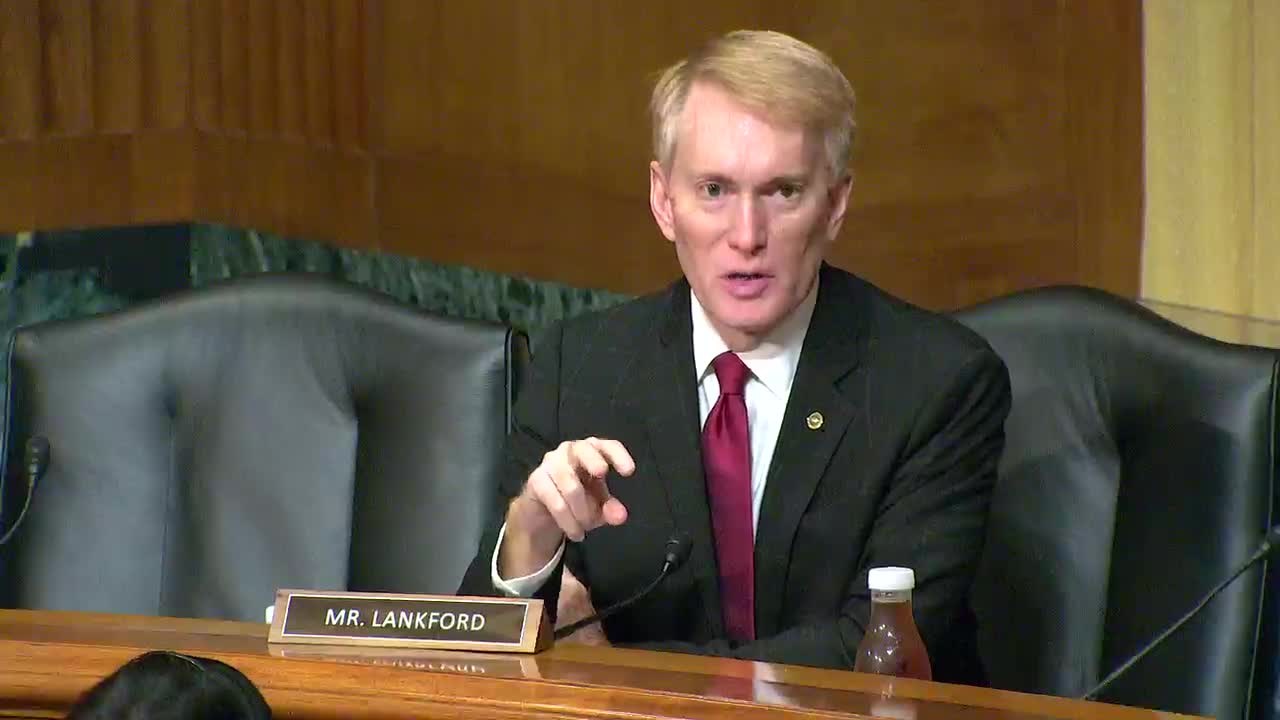IRS Chief Counsel Corbin Discusses Tax Policy Changes for Nonprofits and Small Businesses
September 10, 2025 | Finance: Senate Committee, Standing Committees - House & Senate, Congressional Hearings Compilation
This article was created by AI summarizing key points discussed. AI makes mistakes, so for full details and context, please refer to the video of the full meeting. Please report any errors so we can fix them. Report an error »

The U.S. Senate Committee on Finance convened on September 10, 2025, to discuss the nominations of Jonathan Greenstein for Deputy Under Secretary of the Treasury and Donald Korb for Chief Counsel of the IRS. The meeting highlighted significant upcoming changes in tax policy, particularly regarding charitable giving and the treatment of small businesses.
A key topic was the new regulation allowing individuals who do not itemize their taxes to deduct up to $2,000 per family for charitable contributions starting next year. This change is expected to generate approximately $16 billion in benefits for nonprofits, which play a crucial role in supporting vulnerable populations. Senators emphasized the importance of timely guidance from the IRS to ensure that these regulations are implemented effectively.
Senator Blackburn raised concerns about the IRS's previous exclusion from oversight by the Office of Information and Regulatory Affairs (OIRA), arguing that all agencies should be held to the same standards. Korb acknowledged the need for accountability and expressed his commitment to improving the regulatory process, ensuring that regulations are predictable and fair to taxpayers.
Additionally, Senator Blackburn addressed Revenue Ruling 2024-14, which she claimed unfairly targeted small businesses under the Biden administration. Korb, drawing from his experience representing small businesses, agreed that the choice of business structure should not lead to increased scrutiny and committed to reviewing the ruling's status.
The discussions underscored the nominees' commitment to enhancing the IRS's regulatory framework and ensuring fair treatment for taxpayers, particularly small businesses and charitable organizations. The committee's deliberations will play a crucial role in shaping the future of tax policy and regulatory oversight in the United States.
A key topic was the new regulation allowing individuals who do not itemize their taxes to deduct up to $2,000 per family for charitable contributions starting next year. This change is expected to generate approximately $16 billion in benefits for nonprofits, which play a crucial role in supporting vulnerable populations. Senators emphasized the importance of timely guidance from the IRS to ensure that these regulations are implemented effectively.
Senator Blackburn raised concerns about the IRS's previous exclusion from oversight by the Office of Information and Regulatory Affairs (OIRA), arguing that all agencies should be held to the same standards. Korb acknowledged the need for accountability and expressed his commitment to improving the regulatory process, ensuring that regulations are predictable and fair to taxpayers.
Additionally, Senator Blackburn addressed Revenue Ruling 2024-14, which she claimed unfairly targeted small businesses under the Biden administration. Korb, drawing from his experience representing small businesses, agreed that the choice of business structure should not lead to increased scrutiny and committed to reviewing the ruling's status.
The discussions underscored the nominees' commitment to enhancing the IRS's regulatory framework and ensuring fair treatment for taxpayers, particularly small businesses and charitable organizations. The committee's deliberations will play a crucial role in shaping the future of tax policy and regulatory oversight in the United States.
View full meeting
This article is based on a recent meeting—watch the full video and explore the complete transcript for deeper insights into the discussion.
View full meeting